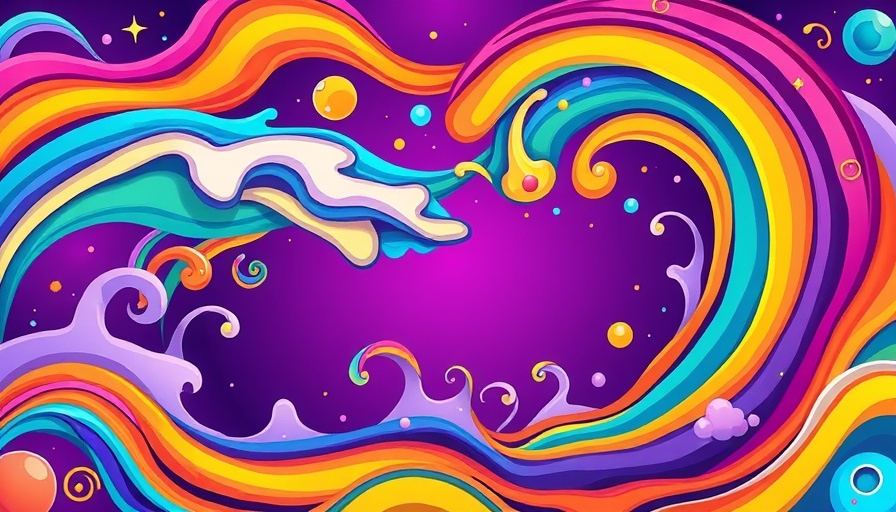
Exploring the Intersection of Psychedelics and Queerness
The relationship between psychedelics and queerness opens a fascinating dialogue about identity, healing, and societal perceptions. With the growing acceptance of psychedelics as therapeutic tools, particularly in mental health, it’s essential to consider how these substances interact with marginalized communities, especially LGBTQ+ individuals.
Historical Context and Background
Psychedelics have a long and storied history, both in traditional healing practices and their modern resurgence in therapy. From indigenous rituals to contemporary research, these substances have often been used to explore consciousness and heal psychological wounds. LGBTQ+ individuals have faced unique challenges, with many turning to psychedelics during times of societal oppression and personal struggle.
Social Connection: Why This Conversation Matters
In areas like the Grand Strand of South Carolina, discussions around mental health, wellness, and identity are vital for community-building. The engagement with psychedelics can offer new pathways for understanding emotional pain, acceptance, and self-love within queer communities. By fostering an environment where these discussions can be had, residents can build networks of support that encourage holistic well-being.
Parallel Examples: Healing Through Connection
Numerous anecdotal stories have emerged from LGBTQ+ individuals who have found meaning and connection through psychedelic experiences. These narratives often highlight transformations that arise from deep self-exploration facilitated by psilocybin or LSD, leading to shifts in perspective regarding societal acceptance and personal identity. Recognizing these stories allows for greater empathy and understanding within the larger population.
Future Insights: The Potential for Psychedelic Therapy
As research regarding psychedelics evolves, they may play a crucial role in mental health treatment. The FDA has already designated certain psychedelic therapies as "breakthrough" treatments for conditions like PTSD and depression. These advancements could specifically benefit LGBTQ+ individuals, who often face higher rates of mental health challenges due to discrimination and stigma.
Diverse Perspectives: Critique and Consideration
Critics of psychedelic therapy often point to the risks of substance use and the potential for misuse. Furthermore, the conversation around access to these therapies needs to consider socioeconomic factors that disproportionately affect marginalized communities, including people of color and those in lower-income brackets. Understanding these diverse viewpoints is essential for a comprehensive dialogue.
Actionable Insights: Embracing Psychedelics Responsibly
For those in the Grand Strand interested in these topics, it’s vital to approach the conversation of psychedelics with care and inform oneself about the therapeutic potential and the risks involved. Community workshops, discussions, and access to literature can empower individuals to make informed choices about their health and wellness.
Emotional Connection: Community Support and Healing
Many individuals find comfort and solace in sharing their experiences with others. Creating safe spaces — whether physically or online — where individuals can share their psychedelic journeys can lead to greater healing and acceptance. Connecting with the community can foster positive mental health and well-being.
As discussions about psychedelics continue to grow, understanding their significance in the context of queerness is more important than ever. With open dialogue, education, and respect, individuals in the Grand Strand can explore these avenues for personal growth and communal healing. Leverage these insights to foster a healthy lifestyle and emotional connection within your community.
 Add Row
Add Row  Add
Add 





Write A Comment